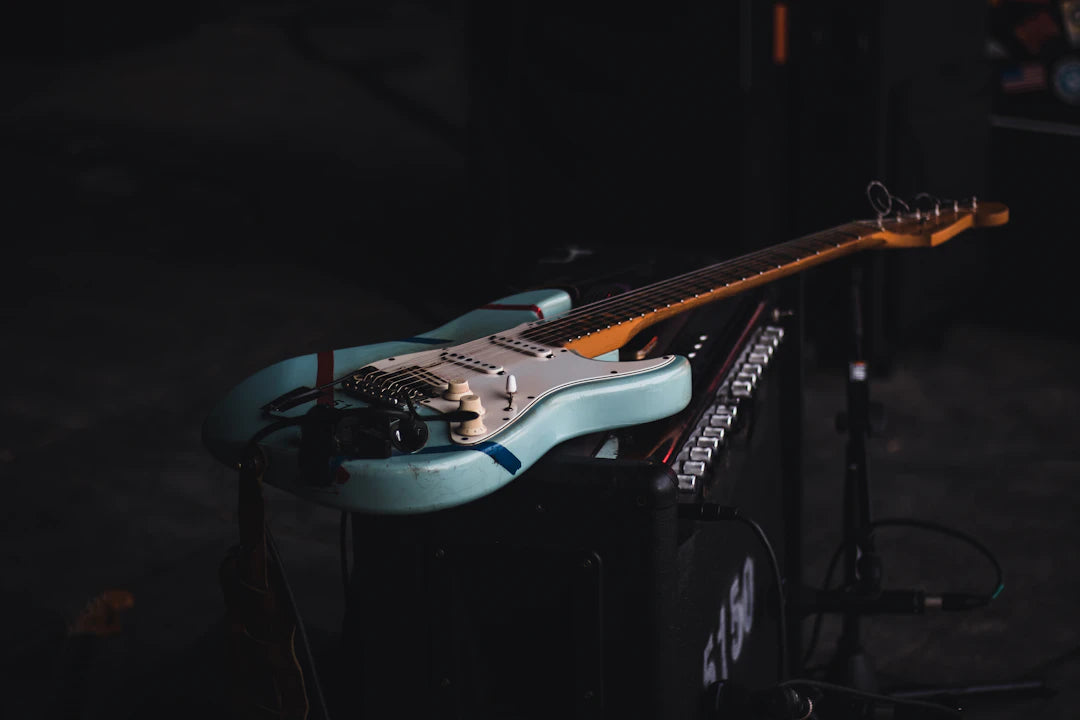Frequently Asked Questions
1. What are electric guitar pickups?
2. What is the difference between single-coil and humbucker pickups?
3. What types of amplifiers are available for electric guitars?
4. How do gain and EQ settings affect the sound of my guitar?
5. What should I consider when testing different guitar and amp combinations?
As an electric guitar enthusiast, one of the most vital decisions you’ll make is pairing your guitar with the right amplifier. Achieving the perfect sound goes beyond just strumming and soloing; it involves understanding how different components, particularly amplifiers and pickups, interact with one another. In this article, we’ll delve into the nuances of electric guitar matching, focusing on how to choose the appropriate amp for your pickups.
Understanding Electric Guitar Pickups
Before we discuss amplifiers, it's crucial to grasp what pickups are and their role in shaping your guitar's tonal character. Pickups are the heart of your electric guitar, capturing the vibrations of the strings and converting them into an electrical signal. There are two primary types of pickups: single-coil and humbucker.
Single-Coil Pickups
Single-coil pickups are known for their bright and sharp sound. They excel at producing clear tones, making them ideal for genres such as rock, blues, and country. However, single-coils are susceptible to electromagnetic interference, which can lead to unwanted noise.
Humbucker Pickups
On the other hand, humbucker pickups are designed to cancel out noise and interference, delivering a warmer, thicker tone. This makes them suitable for heavier styles like metal and hard rock. Understanding the tonal characteristics of these pickups will guide you in matching them with the right amplifier.
Types of Amplifiers: Know Your Options
The amplifier you choose plays a pivotal role in how your guitar sounds. It’s essential to consider the amplifier’s type, wattage, and features when making your selection.
Tube Amplifiers
Tube amplifiers are popular among professional musicians for their warm, natural sound. They create rich harmonics and respond beautifully to dynamics and playing nuances. If you have pickups that favor those subtleties, a tube amp may be the best choice for you.
Solid-State Amplifiers
Solid-state amplifiers use transistors instead of tubes, offering reliability and consistency. They tend to produce a more sterile sound but can be incredibly effective for clean tones. If your guitar features American guitar pickups known for their clarity and brightness, pairing them with a solid-state amp could yield fantastic results.
Matching Amp Features with Pickups
When matching your amplifier to the pickups, consider the following features: gain, EQ controls, and speaker configuration. Each element will significantly impact your sound.
Gain and Distortion
If your guitar is equipped with humbucker pickups, you might be tempted to crank up the gain for a heavy sound. However, be cautious: too much gain can muddy your tone. A good practice is to keep the gain moderate and adjust your amp’s EQ settings to highlight the desired frequencies.
Equalization (EQ)
The EQ controls on an amplifier allow you to shape your sound by boosting or cutting frequencies. If you’re using single-coil pickups, consider emphasizing the treble to retain clarity. Conversely, for humbuckers, you might want to boost the midrange to obtain a thicker tone.
Speaker Configuration
The speakers in your amplifier also play a vital role in how your tone is delivered. Different speakers have unique character traits that can either enhance or detract from your pickups. For instance, a speaker designed for higher frequencies may complement the clarity of American guitar pickups effectively.
Common Misconceptions About Amp and Pickup Matching
Many guitarists hold misconceptions about how to achieve the perfect sound through amp and pickup matching. It’s time to debunk a few of these myths.
Myth 1: All Pickups Work with Any Amp
This is far from true! While technically any pickups can be used with any amp, the tonal results may not be optimal. Understanding your pickups’ character helps narrow down the amp choices.
Myth 2: More Watts Equals Better Sound
It’s easy to equate higher wattage with superior sound; however, louder does not always mean better. Consider how you plan to use your amp (live performances, practice, etc.) to determine the ideal wattage for your needs.
Testing Your Combination
Finding the right amp for your pickups involves trial and error. Here’s a simple process to test different combinations:
- Bring your guitar: Always bring your electric guitar, as it will ensure you hear the specific tonal qualities.
- Experiment: Plug into various amplifiers to compare how different settings affect your sound.
- Have a plan: Know what tones you’re aiming for and test accordingly.
Using Effects Pedals
Don’t forget to consider how effects pedals fit into your amp and pickup equation. Overdrive, distortion, delay, and reverb can enhance or alter your sound considerably. Understanding how these effects interact with your pickups and amplifier will take your tonal exploration to a whole new level.
Final Thoughts: Creating Your Signature Sound
The journey of matching your electric guitar with the right amplifier is every bit as important as the gear you choose. Understanding your pickups, experimenting with amplifiers, and even delving into the world of effects can lead to an exceptional auditory experience. By investing time to learn how these components work together, you can create a sound that not only resonates with you but also stands out in any live performance or recording session. Find your rhythm, be patient, and soon enough, the perfect guitar and amp combination will echo through the halls of your musical journey.











